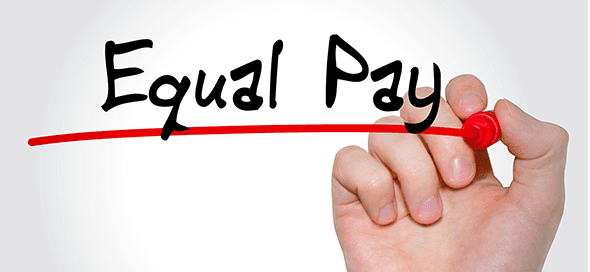There are several key points in the Federal Equal Pay Act and the California Fair Pay Act that admirably support employee rights and minimize the ability of an employer to discriminate when setting employee pay rates. The struggle for equality isn’t over, and the fact that we’re still amending and adding onto these acts shows that the fight is still on to ensure fair wages for all qualified individuals. Let’s look at the Equal Pay Act and California’s Fair Pay Act from both sides – how it affects the employers and how it supports the employees.
THE EQUAL PAY ACT OF 1963 AND CALIFORNIA’S FAIR PAY ACT
 The original Fair Labor Standards Act was created in 1938 and created such landmark concepts as the 40-hour workweek and a national minimum wage and defined over time. It also created guarantees regarding overtime payment and formed child labor laws that are still in existence today. But this original act was amended in 1963 with the passage of the Equal Pay Act. The Equal Pay Act introduced a new U.S. law that sought to eliminate wage variations based on gender. Signed into law by then-president John F. Kennedy, the bill aimed at abolishing gender-based wage discrimination that was deemed to:
The original Fair Labor Standards Act was created in 1938 and created such landmark concepts as the 40-hour workweek and a national minimum wage and defined over time. It also created guarantees regarding overtime payment and formed child labor laws that are still in existence today. But this original act was amended in 1963 with the passage of the Equal Pay Act. The Equal Pay Act introduced a new U.S. law that sought to eliminate wage variations based on gender. Signed into law by then-president John F. Kennedy, the bill aimed at abolishing gender-based wage discrimination that was deemed to:
- Prevent maximum utilization of resources
- Burden commerce and the free flow of goods in commerce
- Cause labor disputes and obstruction of commerce
- Depress wages and standards of living for some employees
- Create an unfair method of compensation
California’s Fair Pay Act is an amendment to the state’s existing labor laws and was formally signed by Governor Jerry Brown in late 2015. As of January 1, 2016, the Fair Pay Act protects employees who actively discuss their pay with co-workers, thereby ensuring pay is open and out on the table versus a topic of conversation that could lead to punishment or retribution. The bill also addresses much of the verbiage in the original law to make it clearer and easier to interpret for the employee.
HOW DO THESE ACTS AFFECT EMPLOYERS AND EMPLOYEES?
These important pieces of legislation affect employers and employees in positive ways, and businesses that make it a point to act according to the letter and spirit of these laws often see a host of important benefits, including:
- Enhanced productivity: By minimizing time spent on equal pay claims, legal hearings/proceedings, and other HR issues, work hours are better spent on productive activities.
- Money saved: Legal fees can add up quickly, and employers who fail to adhere to equal pay laws quickly find out that a seemingly minute variance in pay can cost thousands of dollars over the course of a trial or settlement.
- Reputation: By taking the right approach from the start, namely, paying employees fairly regardless of their age, sex, ethnicity, etc., companies will be seen in a positive light and won’t worry about reputation damage.
- Staff morale: Businesses should take proactive steps to ensure equal and fair pay to avoid creating low morale situations in the workplace.

HOW DOES THE CALIFORNIA FAIR PAY ACT HELP EMPLOYEES?
California’s Fair Pay Act does more than simply add on to existing state and federal-level employment laws. It creates greater clarity for employers and employees alike when it comes to ensuring a fair and equitable work environment for all. For example, the CA Fair Pay Act allows employees to be paid differently based on seniority, merit (as long as a formal merit system is in place and is applied equally to all), production, quality or quantity bonuses, or another bona fide factor other than sex, race or ethnicity.
Additional education is a qualifying factor that can trigger higher pay for one individual versus another, while a “business necessity” increase is another. An example of a business necessity is a higher rate of pay for an employee who works a shift that is during peak times of the day versus one who works during a slower time. Those who are on-call during certain times may be paid more than those who simply work a pre-determined schedule each week.
The California Fair Pay Act also (as of January 1, 2017) prohibits employers from using an applicant’s previous salary as the sole basis for paying that individual more than another employee performing a similar job function. Other factors like education, skill level, or experience in the field must come into play.
The California Fair Pay Act and the Equal Pay Act of 1963 are important laws that protect employees throughout our great nation. If you feel like you have or are experiencing discrimination in the workplace and are ready to stand up for your rights, contact the experienced employment law firm at Feldman Brown Olivares today.


